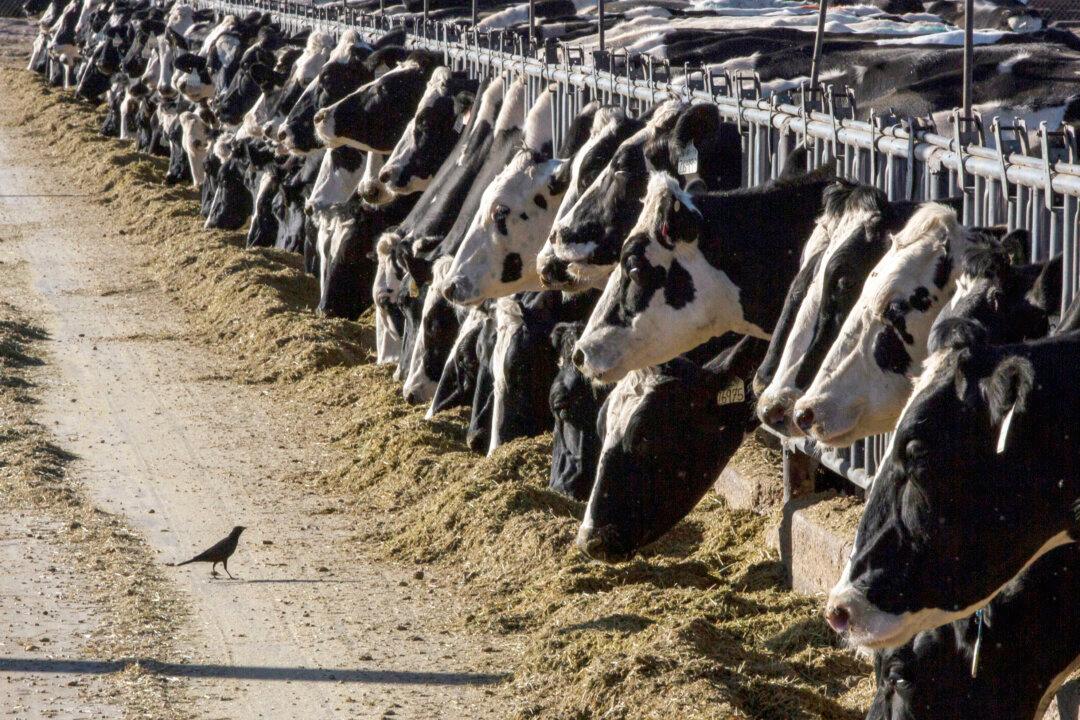North Carolina authorities on April 10 reported that cows in the state tested positive for highly pathogenic avian influenza, as the state became the latest to impose restrictions on the movement of cows.
Testing of samples from North Carolina conducted by the U.S. Department of Agriculture (USDA) came back positive for the influenza, also known as the bird flu and HPAI, the North Carolina Department of Agriculture and Consumer Services said.





